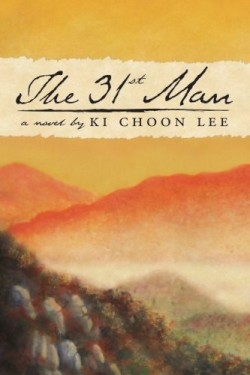The 31st Man
Korea in 1936 was an annexed and occupied land and had been since 1910 when Japan expanded and solidified their regional position in relation to rivals Russia and China. A group of thirty-one men attempted to declare Korea’s national independence on March 1 1919. Ki Choon Lee’s 31st Man follows the only survivor of the resulting Japanese crackdown. He eludes hundreds who search for him leaving a privileged existence in cosmopolitan Seoul to roam the southern countryside surviving by hunting growing out his beard and repaying those who provide shelter with carefully crafted poems which adorn walls for years. He’s a hero no one will ever turn in—something between a myth and a ghost.
The 31st man is seen through the eyes of a young boy more or less the author. He quietly turns up as a progressive schoolteacher in the village of his one-time fiancé the narrator’s mother. The village is split into two familial factions—the commoner Hungs currently in favor with the Japanese administration versus the Yis one-time nobility recently removed from township governance. The families jockey for advantage in school and engage in brawls at the river. Despite their differences they unite in private disdain for the waemon or “foreign devils” who control every aspect of life; they rejoice together when a man from their village medals at the racially-charged Olympics in Berlin.
Lee points out gender inequities which were part of Korean society during the early twentieth century but wisely doesn’t register objections in a didactic manner. Reality and the novelist’s opinion of that reality fit into the fabric of the story perfectly well. Good men were expected to ignore their wives’ emotional distress. Malicious rumors serve agendas such as “An unmarried city man is ruining all our young girls on the pretext of modern education.” After an innocent situation is misunderstood the narrator’s mother tries to explain to her son: “‘No matter how good a brand if the merchandise in question appears to be used people think twice and switch to brand new…’”
Ki Choon Lee left Korea on a scholarship to Aurora College in 1945 at the end of the Japanese Imperial occupation. He later naturalized and worked as a pharmacist for Mercy Hospital in Champaign-Urbana Illinois. Pictures of the author and family members who don’t appear in the novel are inserted in the book’s center leaving a single orphan page after to end the randomly interrupted chapter. The fact / fiction line is hard to ascertain here but that blurring is part of a broader trend and is not important to the quality of the story. The historical basis is authentic and the story is nicely delivered. Too many Americans know of Korea only what they learned watching the television show M.A.S.H. Lee’s 31st Man takes readers inside a long-running occupation with satisfying credibility it presents a universally admirable hero and shows how he can be toppled.
Reviewed by
Todd Mercer
Disclosure: This article is not an endorsement, but a review. The publisher of this book provided free copies of the book and paid a small fee to have their book reviewed by a professional reviewer. Foreword Reviews and Clarion Reviews make no guarantee that the publisher will receive a positive review. Foreword Magazine, Inc. is disclosing this in accordance with the Federal Trade Commission’s 16 CFR, Part 255.

